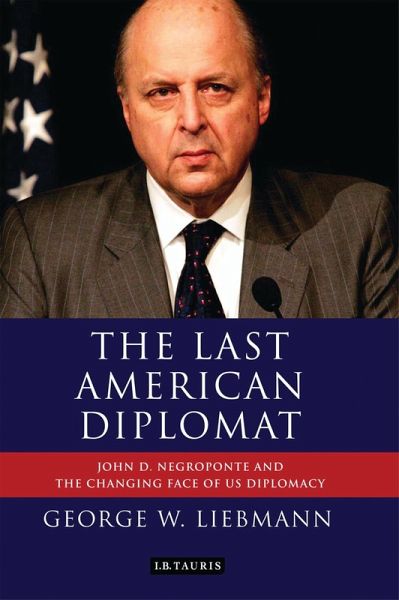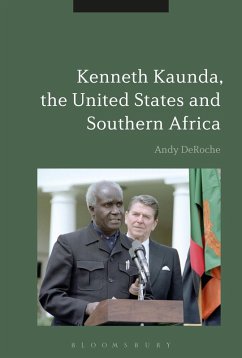
The Last American Diplomat (eBook, ePUB)
John D Negroponte and the Changing Face of US Diplomacy

PAYBACK Punkte
54 °P sammeln!
Can John D. Negroponte be described as 'The Last American Diplomat'? In a career spanning 50 years of unprecedented American global power, he was the last of a dying breed of patrician diplomats - devoted to public service, a self-effacing and ultimate insider, whose prime duty was to advise, guide and warn - a bulwark of traditional diplomatic realism against ideologue excess. Negroponte served as US ambassador to Honduras, Mexico, the Philippines and Iraq; he was US Permanent Representative to the UN, Director of National Intelligence and Deputy Secretary of State to George W. Bush. His was ...
Can John D. Negroponte be described as 'The Last American Diplomat'? In a career spanning 50 years of unprecedented American global power, he was the last of a dying breed of patrician diplomats - devoted to public service, a self-effacing and ultimate insider, whose prime duty was to advise, guide and warn - a bulwark of traditional diplomatic realism against ideologue excess. Negroponte served as US ambassador to Honduras, Mexico, the Philippines and Iraq; he was US Permanent Representative to the UN, Director of National Intelligence and Deputy Secretary of State to George W. Bush. His was a high-flying and seemingly conventional career but one full of surprises. Negroponte opposed Kissinger in Vietnam, supported a 'proxy war' but opposed direct American military action against Marxists in Central America - facing bitter Congress opposition in the process. He swam against the floodtide of George W. Bush's neocon-dominated administration, warning against the Iraq war as a possible new 'Vietnam' and criticising aspects of Bush's 'War on Terror'. He disconcerted the administration by arguing that the re-establishment of Iraq would take as long as five years. And he was influential in international social and economic policy - working for the successful re-settlement of millions of refugees in Southeast Asia following the Vietnam War, issuing early warnings about the scourge of AIDS in Africa and successfully launching the North American Free Trade Agreement (NAFTA). George W. Liebmann's incisive account is based on personal and shared experience but it is no hagiography; beyond the author's discussions with Negroponte, this book is deeply researched in US state papers and includes interviews with leading actors. It will provide fascinating reading for anyone interested in the inside-story of American diplomacy, showing personal and policy struggles, and the underlying fissures present even in the world's last remaining superpower.













